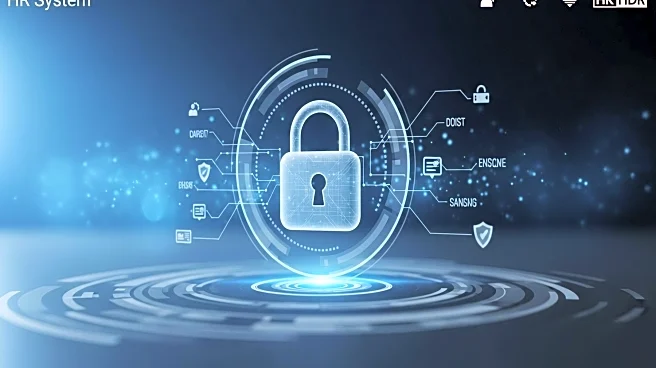What is the story about?
What's Happening?
Chief Human Resources Officers (CHROs) are being advised to take a more proactive role in digital security, especially as HR functions increasingly incorporate artificial intelligence and automation tools. According to a report by Gartner, CHROs should integrate security into their HR automation strategies, identify threats proactively, manage third-party risks, and foster a culture of security within their organizations. The report emphasizes the importance of CHROs in preventing cyberattacks and responding effectively when breaches occur. HR teams are encouraged to improve their digital fluency, engage IT leaders, and include security considerations in all phases of HR tech planning. The report also highlights the growing frequency of data breaches, which have significant implications for talent management and organizational reputation.
Why It's Important?
The involvement of CHROs in digital security is crucial as data breaches can lead to severe consequences, including legal risks, damage to employer reputation, and loss of employee trust. As HR systems increasingly rely on AI and automation, the potential for data breaches grows, making it essential for HR leaders to be vigilant. By taking an active role in cybersecurity, CHROs can help protect sensitive employee data and intellectual property, thereby safeguarding the organization's employment brand. The report underscores the need for HR teams to collaborate with IT and security leaders to ensure compliance with cybersecurity policies, which is vital for maintaining organizational integrity and trust.
What's Next?
CHROs are expected to establish third-party risk management for HR technologies, partnering with procurement and legal teams to assess vendor security and verify data-handling practices. Organizations may see increased collaboration between HR, IT, and security teams to conduct regular audits on AI tools and ensure compliance with cybersecurity policies. As part of fostering a culture of security, CHROs will likely focus on encouraging employees to report security concerns and assess risks regularly, promoting psychological safety within the workplace.
Beyond the Headlines
The report suggests that fostering a culture of security involves creating an environment where employees feel safe to report security issues without fear of repercussions. This psychological safety is crucial for early detection of potential threats and effective incident response. Additionally, the integration of security into HR tech planning may lead to long-term shifts in how organizations approach digital transformation, emphasizing the importance of security in all technological advancements.















